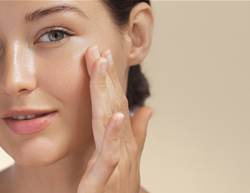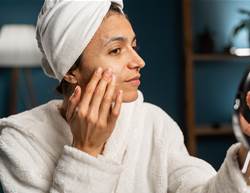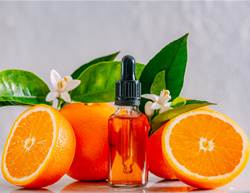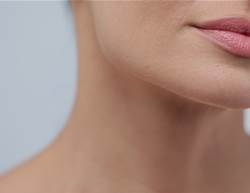Washing your face after a long day of sweating through make-up is a feeling of pure bliss—but there’s always that lingering question: Did I get it all off? Is my skin actually clean? Double cleansing is a great first step, but facial toners can help sweep away any stubborn traces of dirt with just a quick swipe using a (preferably reusable) cotton round. Some say they’re unnecessary, but it really comes down to personal preference.
Here’s what to know about toner types, how they work, and how to find the right one for your skin.
What is face toner?
Toner is a water-light product used after cleansing and before applying the rest of your skincare. According to dermatologist Dr Elizabeth Bahar Houshmand, toners help prep the skin for serums and moisturisers by removing leftover oil or grime your cleanser may have missed.
Toners once had a reputation for being harsh and drying due to high alcohol content. These days, however, many formulas are alcohol-free, hydrating, and tailored to suit different skin types.
Face toner benefits
“Toner can help remove make-up, pollution and impurities,” says Dr Houshmand. “Depending on the formula, it can also hydrate the skin and deliver brightening or exfoliating ingredients.”
Sasha Banner, skincare trainer and licensed facialist at Heyday, adds that some toners may also help minimise the appearance of fine lines, calm redness and reduce inflammation—again, depending on what’s inside.
Are toners really necessary?
Dermatologists are divided when it comes to toners—and in the end, it comes down to personal preference. “I think they can be helpful,” says Dr Houshmand. “I recommend toners to patients based on their specific skin concerns.”
Many people also just enjoy using them. “Honestly, toners feel really nice,” adds Banner. “It’s like a glass of water for your skin—go ahead and indulge.”
How to use face toner
After washing with a gentle cleanser, apply toner using a cotton pad. Gently swipe it around your face (avoiding the eye area) to remove leftover dirt and oil. “Now your skin is clean and prepped for the next steps,” says Dr Houshmand. That next step should always include moisturiser to keep your skin barrier healthy and balanced, she adds.
Toner vs. essence
With so many toner-like products on the shelves, it’s easy to feel confused. So, here’s the difference: toners and essences might feel similar, but they serve different purposes.
Toners are part of the cleansing phase. Many contain astringents like witch hazel or rosewater to help clarify the skin. Essences, on the other hand, are all about hydration. They’re typically lightweight and loaded with nourishing ingredients that layer moisture into the skin. “Essences can act like a primer for serums and moisturisers,” says Dr Houshmand, as these products absorb best on damp skin.
How to find the right face toner for you
Your skin type will guide which toner ingredients are right for you. Here’s what Dr Houshmand and Sasha Banner suggest:
Avoid alcohol. Instead, look for hydrating ingredients like glycerin, hyaluronic acid or rosewater.
Oily or acne-prone skin
Go for exfoliating or slightly astringent toners with witch hazel or chemical exfoliants like glycolic and salicylic acid. These help remove dead skin and absorb excess oil. Start slow—just two to three times a week—until your skin adjusts, says Dr Houshmand.
Normal skin
If your skin is well-balanced and you’re simply looking for an extra cleanse, opt for a gentle formula with a mix of soothing and hydrating ingredients.
And if you’re unsure? Don’t guess. “Check with your dermatologist to make sure the toner suits your skin type,” says Dr Houshmand.










